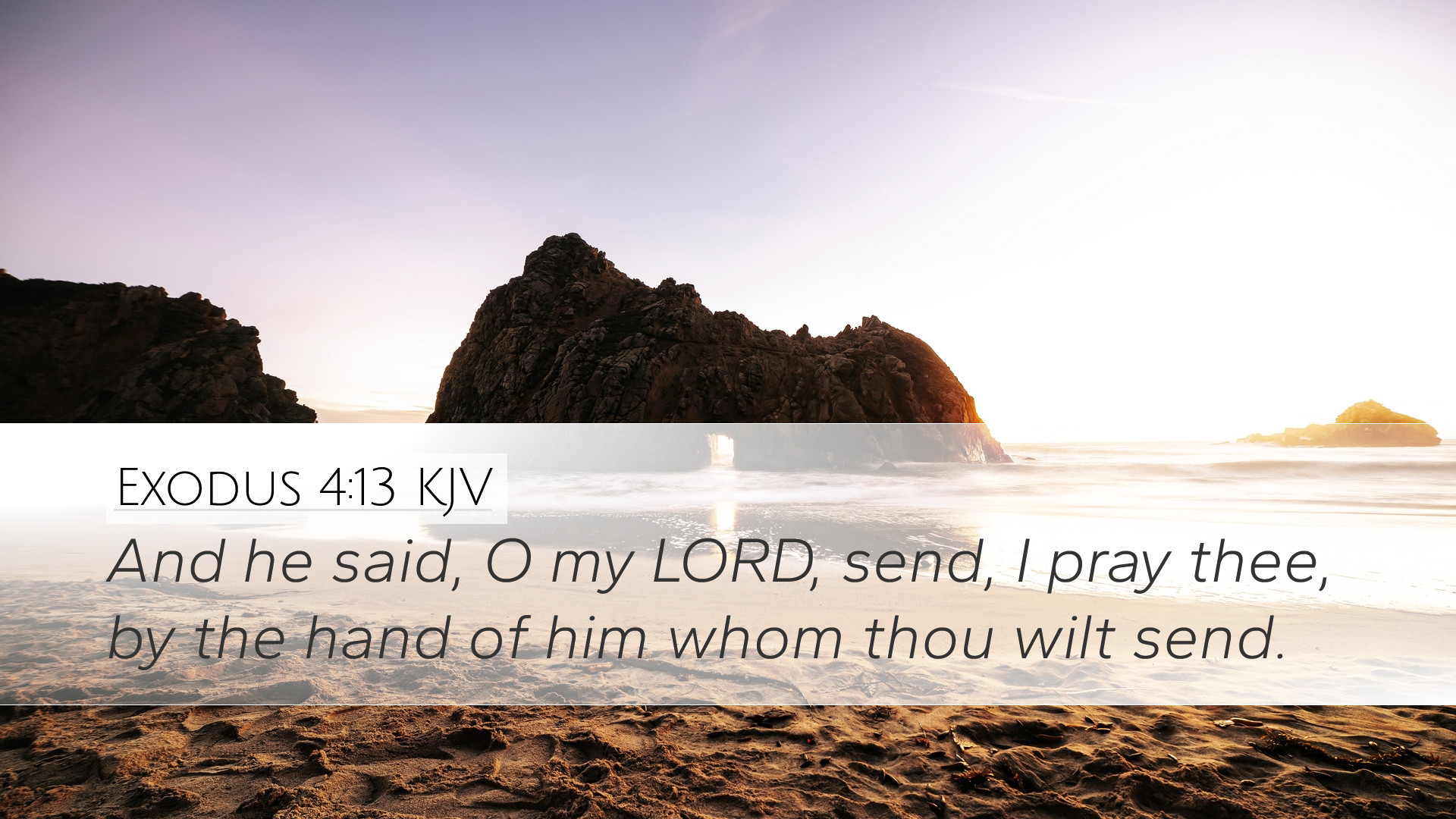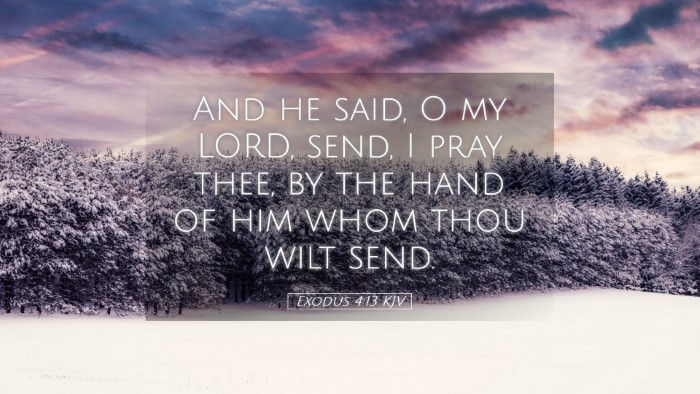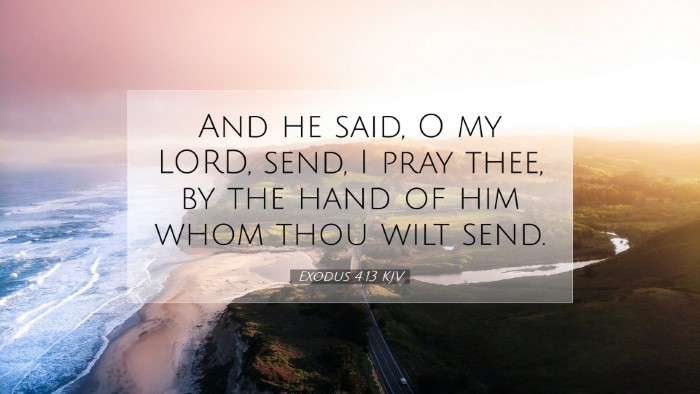Commentary on Exodus 4:13
Exodus 4:13 states, "But he said, Oh my Lord, please send someone else." This verse captures a pivotal moment in the narrative of Moses as he grapples with his calling and reluctance to lead the Israelites out of Egypt. The reluctance of Moses resonates deeply with many spiritual leaders, students, and scholars as they reflect on themes of calling, inadequacy, and divine purpose.
Contextual Background
The setting of Exodus 4 takes place after Moses has encountered God in the burning bush. God has commissioned Moses to return to Egypt to free the Israelites from slavery. However, Moses hesitates and presents several objections, reflecting his inner turmoil and feelings of inadequacy.
Insights from Public Domain Commentaries
Matthew Henry's Commentary
Matthew Henry emphasizes the human reluctance towards God’s call. He notes that Moses' reply, "Oh my Lord, please send someone else," illustrates a deep sense of fear and a lack of confidence in his abilities. Henry reflects on the tendency of people to resist divine calling due to feelings of insignificance and the fear of responsibility. He encourages readers to recognize that God equips those whom He calls, and that human limitations can never thwart divine purposes.
Albert Barnes' Notes on the Bible
Albert Barnes provides an analytical view on Moses' objections. He acknowledges that Moses shows a profound awareness of the difficulties ahead, which speaks to the weight of the leadership burden. Barnes elaborates on the aspects of obedience and submission to God’s will, interpreting Moses' response as an example of human reluctance to step into God-given roles. He argues that Moses' plea underscores a common human disposition towards fleeing from service due to fear of failure, suggesting that God desires willing hearts rather than perfect ones.
Adam Clarke's Commentary
Adam Clarke delves into the psychological aspect of Moses' reluctance. He suggests that Moses' response is not merely a rejection of God's command, but a cry for mercy, revealing an internal conflict — between understanding the gravity of the task and acknowledging his personal weaknesses. Clarke also points out that this moment serves as a critical teaching point about divine grace. Clarke encourages readers to understand that even the most reluctant figures in Biblical history ultimately conform to God's divine plan, and that God’s reassurance is often what leads an individual to embrace their calling.
Theological Reflections
The verse invites various theological reflections on the nature of divine calling. It challenges readers to consider the ways in which God speaks to individuals and the myriad responses that can arise from such encounters. The following themes are particularly noteworthy:
-
Inadequacy in Leadership:
Moses models a common response to leadership calls; the awareness of personal inadequacies often leads to a sense of helplessness. The acknowledgment of one’s insufficiency can lead to sincere dialogue with God.
-
Divine Empowerment:
The chapter encourages understanding that God does not look for the most qualified individuals but rather desires those who are willing to trust Him. Divine empowerment is central to fulfilling any calling.
-
The Power of Prayer:
Moses’ plea for someone else demonstrates the human tendency to seek divine intervention when contemplating overwhelming tasks. It serves as a reminder of the importance of prayer and seeking God’s will in our lives.
Application for Today
For pastors, students, and theologians, Exodus 4:13 serves as a reminder to face their fears and reservations regarding their leadership roles or spiritual callings. The blending of human reluctance and divine assurance is a theme that resonates across generations. In practical terms, those aspiring to serve are encouraged to:
-
Recognize Their Call:
Identifying one's divine calling requires introspection and prayer, acknowledging both strengths and weaknesses.
-
Trust in God’s Provision:
Believers are reminded that God equips His servants, and their efforts should be rooted in dependence on Him, rather than their personal capabilities.
-
Encourage Others:
Those who have overcome their own reservations should provide mentorship and support to fellow believers who are hesitant to embrace their roles.
Conclusion
Exodus 4:13 encapsulates a significant moment of hesitation that many experience when faced with divine calls. Through the insights of Matthew Henry, Albert Barnes, and Adam Clarke, we gain a holistic understanding of the balance between human reluctance and divine command. It is essential for leaders, scholars, and students of the Bible to engage with such narratives, as they teach profound lessons about faith, obedience, and God’s sovereign capability to use those who feel unworthy. The journey of Moses from reluctance to leadership illustrates that God can transform fears into faith for those willing to yield to His call.


